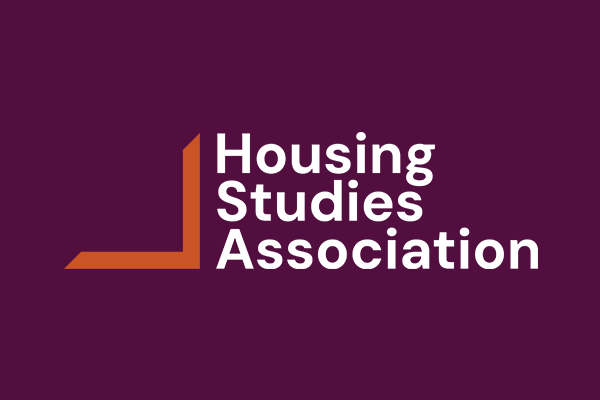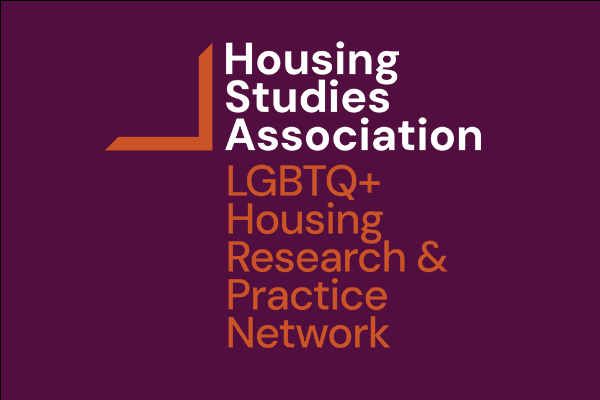
Special Issue of Housing Studies
Towards a global housing studies: beyond dichotomy, normativity and common abstraction
Ryan Powell ([email protected]), Department of Urban Studies and Planning, The University of Sheffield, Winter Street, Sheffield, UK, S10 2TN
AbdouMaliq Simone ([email protected]), Urban Institute, ICOSS, The University of Sheffield, 219 Portobello, Sheffield, UK, S1 4DP
We invite abstract submissions for a Special Issue of Housing Studies (to be published in 2021) that seeks to move beyond the dichotomy of Global North and Global South. The Special Issue aims to foster an open-minded dialogue between housing scholars from different disciplinary backgrounds, methodological standpoints and focusing on different geographies in understanding emergent interdependencies and shared challenges.
Titles and abstracts (300 words max.), along with full contact details, should be submitted to Ryan Powell ([email protected]) and AbdouMaliq Simone ([email protected]) no later than February 7th 2020.
Call for papers
A global orientation within housing studies can sometimes be hampered by the tendency within academic research toward an empirical and theoretical separation between the “Global South” and “Global North”. The distinctions organized around this binary have an important pragmatic usefulness, while also acknowledging the colonial legacy of geopolitical relations. However, conceptualisations of housing challenges - particularly in the aftermath of the Global Financial Crisis (GFC) of 2007/8 - have drawn attention to pervasive global processes and flows (of materials, money, people and ideas) prominent across both North and South (Goodfellow, 2017; Peck and Theodore, 2015; Sassen, 2014; Rolnik, 2013, 2019). The GFC exposed the way in which national housing systems are increasingly interconnected. It underscored both the centrality of housing and real estate to processes of capital accumulation, wealth creation, and dispossession, but also common housing policy challenges for North and South (Aalbers, 2016; Lees et al. 2016; Watt and Smets, 2017). Widespread processes of housing in/formalization, commodification, financialization, the globalization of real estate investment, securitization, domestic fortification, gentrification, expulsion/eviction, etc. are increasingly apparent in different contexts across the globe, but with different trends discernible within and between nations. This may be understood as a dual process of diminishing contrasts in the ‘deeper systemic dynamics that articulate much of what now appears as unconnected’ (Sassen, 2014, p.5), but increasing varieties in the manifestations of these trends at the local level. Under such conditions, the North-South dichotomy appears increasingly difficult to sustain.
For example, concepts like housing “informality”, “financialization”, or “gentrification” have come to be used without sufficient attention to context; or without realisation of the sharing of problems and issues within north and south (such as the presence of extreme poverty within the north, and pockets of ultra-affluence within areas of “southern” housing). For example, the spread of housing informality in the “Global North” has gained attention from housing scholars with recent research challenging the notion of housing informality as a phenomenon of the “Global South” (Boudreau and Davis, 2017; Clough Marinaro, 2017; Durst and Wegman, 2017; Pasquetti and Picker, 2017). It is also clear that across different regions of the world, people are living in many different ways in many different built environments so that the meaning of “housing” is being stretched in unrecognizable ways beyond our available vernaculars.
Moreover, the urgent resource and environmental challenges represented by UN Sustainable Development Goal 11.1 (adequate housing for all) bring the global interconnectedness of housing systems into even sharper relief. The climate crisis has raised awareness of the fact that technology and adaptation alone cannot ‘prolong our normative orientations and will to habitation’ (Simone, 2016, p.142). That is, new sustainable approaches, techniques and human practices toward habitation are required that learn from housing developments in the North and South. Consequently, there is growing recognition that the dichotomy of Global North-Global South cannot provide an adequate framing for interdependent, globalized housing systems and shared environmental challenges. The constitution of margins and peripheries - both urban and rural - can sometimes be obscured by dichotomous thinking, common abstraction, and normative academic orientations toward what ought to be. This can potentially block the path to new solidarities, the realization of a global housing movement, and alternative futures and imaginaries (Lancione, 2019). Supporting the emergence of an open-minded dialogue across geographical contexts, methodological positions, and conceptual standpoints is required in moving toward a global housing studies: one that can aid understanding of, and respond to, the complex and pressing challenges represented by the universal need for human shelter across the world.
Since the GFC there has been greater interest in housing as an object of inquiry in making sense of social polarization, which has generated more and more interest in housing from scholars that would not readily identify with the field of housing studies, and who may not be aware of the richness of the housing studies tradition. At the same time, a growing body of research centred on the Global South has increasingly placed housing centre stage as a key component of the “right to the city” and a driver of development trajectories. Yet this body of work has not taken full advantage of the long tradition of housing studies scholarship. Likewise, the housing studies field centred on Anglophone interpretations could benefit from new empirical and conceptual insights emanating from the Global South.
In responding to these developments this Special Issue seeks to open up a dialogue across these fields in contributing and moving toward a global housing studies perspective. It also responds to the urgent need to address the under-representation of African and Latin American voices within the pages of Housing Studies. It has four key aims:
To place housing and home at the centre of our understanding of the contemporary drivers of urban and rural inequality in offering new theorizations and articulations
To develop new spatial imaginaries and lines of articulation that move beyond North/South distinctions, so as to connect the long-standing tradition of interdisciplinary housing scholarship in the Global North to new perspectives from the Global South
To expand the reach of Housing Studies into the Global South and solicit contributions from scholars from (and of) the South.
To encourage collaboration and co-authorship between housing scholars across Global North and Global South.
The Special Issue aims to move beyond static notions of the precariat and insecurity in acknowledging the tentativeness and provisional character of contemporary life at the margins, its ambivalences, and how housing and home is a pivot around which everyday ambivalences coalesce. We therefore seek contributions which go beyond stubborn dichotomies (e.g. North/South, formal/informal, agency/structure), common abstractions and normativity in disrupting and destabilising taken for granted assumptions and common sense thinking on housing. We are particularly interested in empirical, theoretical, comparative and historically-informed accounts that can provide for new theorizations and frameworks that bring North and South together. Papers might address, but need not be confined to, the following questions:
In moving beyond dichotomous thinking, how might North-South be re-described in terms of each other through an engagement with housing studies and the universal concepts of home and shelter?
How might a focus on housing processes across North and South in diverse spatial configurations advance, refine and critique common abstractions such as gentrification, informality, commodification, financialization etc.?
In what ways do normative policy inclinations obscure the complex, ambivalent and everyday interdependencies of the housing margins? How do they curtail alternative readings and policy imaginaries of these populations, relations and spaces?
How might housing scholars connect new housing insights on globalized flows of materials, money, people and ideas to unequal outcomes and experiences on the ground?
What opportunities are afforded by a unitary conception of a global housing studies? For example, in terms of international policy, solidarity and environmental challenges.
In what ways can housing studies serve as a bridge between different methodological and conceptual approaches? For example, what opportunities do feminist, postcolonial, critical disability studies, critical race theory, queer theory, environmentalism, and posthuman perspectives present for thinking housing studies differently?
Peer review process
All selected papers for the Special Issue will be subject to the usual robust peer review process of Housing Studies. A developmental pre-peer review process is open to scholars unpublished in Housing Studies and for whom English is not their first language. Prospective authors should state whether they wish to take up this pre-peer review process at the top of their abstract.
Schedule
Call for abstracts 16th December 2019
Deadline for abstracts 7th February2020
Selection of abstracts 17th February 2020
Pre-peer review support 17th February to 31st July 2020
Deadline for first drafts 31st July 2020
Guest Editor comments to authors 31st August 2020
Deadline for revised papers 30th October 2020
Peer review comments to authors 29th January 2021
Deadline for second drafts 30th April 2021
Peer review comments 31st May 2021
Final submission of papers July 2021
References
Aalbers, M. B. (2016) The financialization of housing: A political economy approach. Routledge.
Boudreau, J. A., & Davis, D. E. (2017). Introduction: A processual approach to informalization’, Current Sociology, 65(2), pp.151-166.
Clough Marinaro, I. (2017) ‘The informal faces of the (neo-) ghetto: State confinement, formalization and multidimensional informalities in Italy’s Roma camps’, International Sociology, 32(4), 545-562.
Durst, N. J. and Wegmann, J. (2017) ‘Informal housing in the United States’, International Journal of Urban and Regional Research, 41(2), 282-297.
Goodfellow, T. (2017) ‘Urban fortunes and skeleton cityscapes: real estate and late urbanisation in Kigali and Addis Ababa’, International Journal of Urban and Regional Research, 41(5), 786-803.
Lancione, M. (2019) ‘Radical housing: on the politics of dwelling as difference’, International Journal of Housing Policy, 1-17.
Lees, L., Shin, H. B. and López-Morales, E. (Eds.) (2016) Planetary gentrification. Cambridge: Policy Press
Pasquetti, S. and Picker, G. (2017) ‘Urban informality and confinement: Toward a relational framework’, International Sociology, 32(4), 532-544.
Peck, J. and Theodore, N. (2015) Fast policy: Experimental statecraft at the thresholds of neoliberalism. University of Minnesota Press.
Rolnik, R. (2013) ‘Late neoliberalism: the financialization of homeownership and housing rights’, International journal of urban and regional research, 37(3), 1058-1066.
Rolnik, R. (2019) Urban Warfare. Verso Trade.
Sassen, S. (2014) Expulsions. Harvard University Press.
Simone, A. (2016) ‘The uninhabitable? In between collapsed yet still rigid distinctions’, Public Culture, 12(2), 135-154.
Soederberg, S. (2018) ‘Evictions: A global capitalist phenomenon’, Development and Change, 49(2), 286-301.
Watt, P., & Smets, P. (Eds.). (2017). Social housing and urban renewal: A cross-national perspective. Emerald Publishing Limited.






